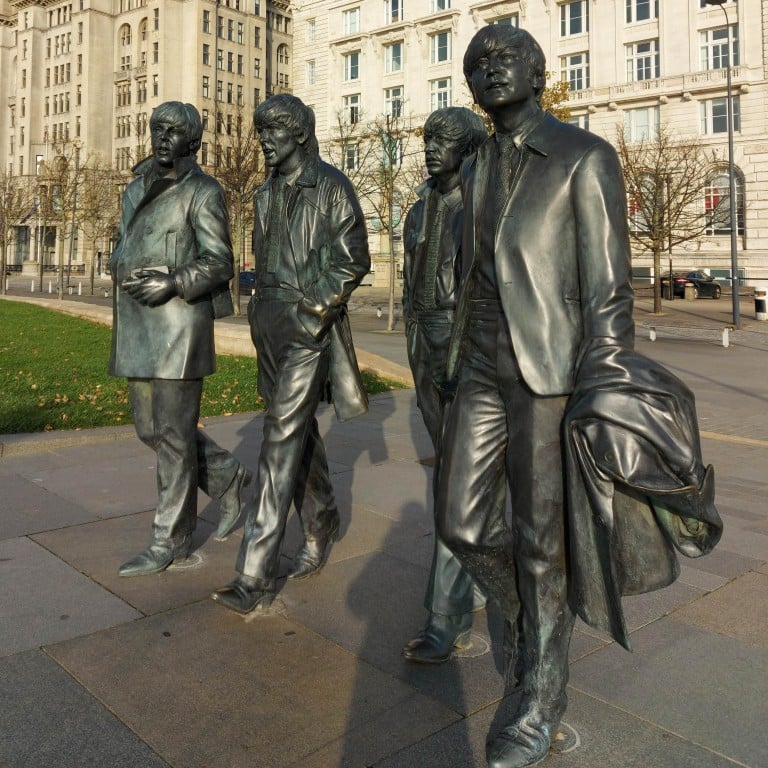
Beatles fans can study for a master’s degree in the Fab Four at the University of Liverpool
- Professor Holly Tessler says course is centred not just on their music but the growth of Beatles-connected tourism in the city 50 years after they split up
- In spite of the pandemic, the course has attracted widespread publicity and interest from potential students worldwide
They were the shots that were heard around the world … and for a bookish 10-year-old girl in Philadelphia, in the United States, the assassination of John Lennon, in 1980, ignited a passion for The Beatles that would transplant her from stateside to Merseyside.
“Day in, day out, all you would see on TV was thousands of people in floods of tears, and I thought, ‘Who was this guy? He must have been really important,’” Holly Tessler recalls.
“That set me off wondering who The Beatles were. Being a nerd, I went to the library and found a biography and I became fascinated.
“I would come home and say to my parents, ‘Did you know Paul McCartney is left-handed?’ After weeks of endlessly studying trivia, my parents said, ‘Listen to the music, kid.’ So, I did – and that’s what really did it for me.”
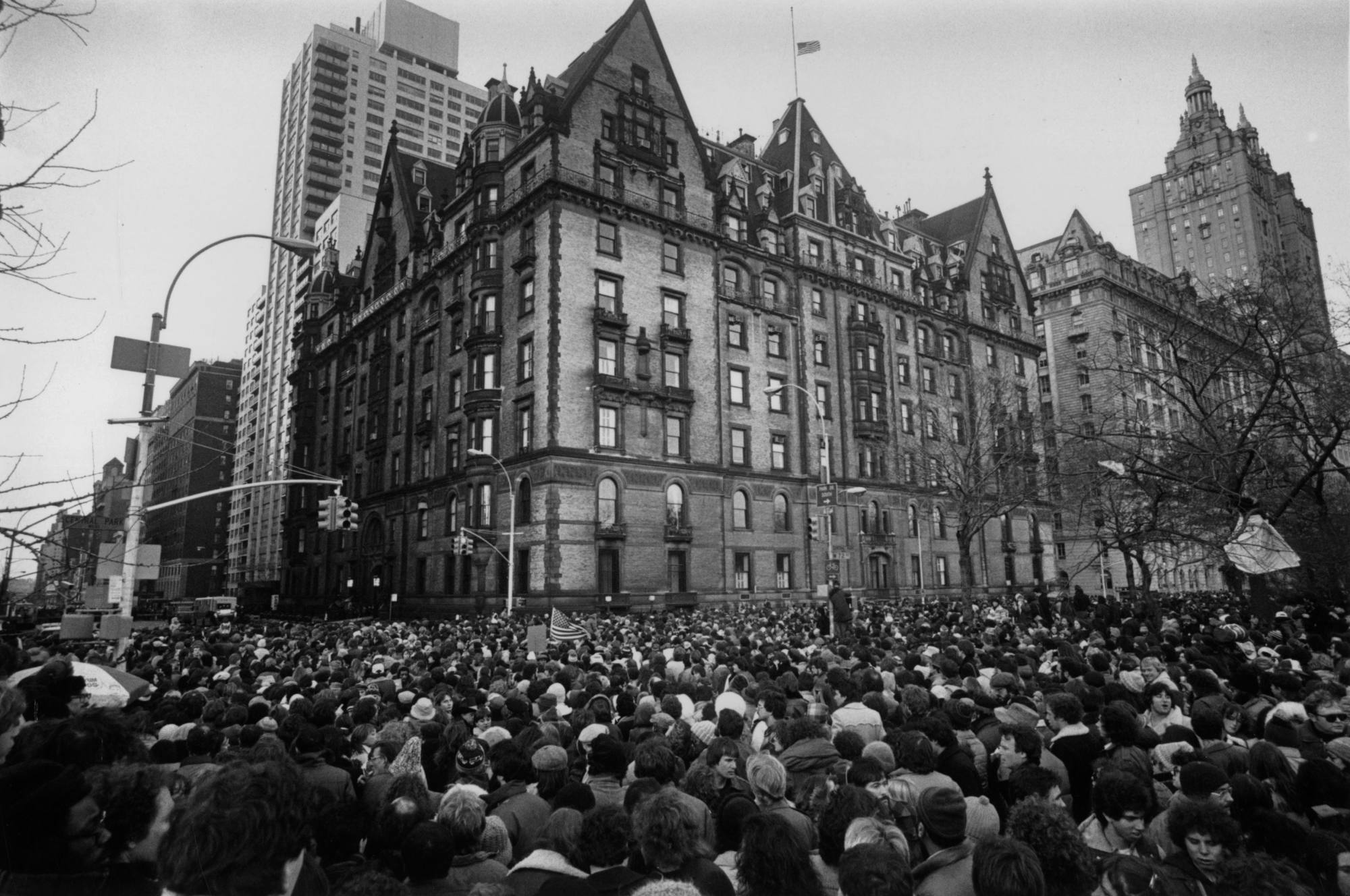
Two decades later, Tessler made a pilgrimage to The Beatles’ birthplace, Liverpool, in northwest England, to do an MBA specialising in the music industry, arriving just in time for the death of a second Beatle, George Harrison.
“Walking through Liverpool you saw floods of media people from around the world,” she recalls. “It was remarkable. I thought, ‘The Beatles left Liverpool decades before. Why are they here?’ Usually when someone dies the attention is on the city where they died, not where they were born. I realised there was a very strong connection between Liverpool and The Beatles.”
Beatlemania: screaming Hong Kong teens welcome Fab Four in 1964
Tessler did her PhD on The Beatles and their brand, and now – another 20 years later – she’s back in Liverpool, this time to teach a new master’s degree course on The Beatles at the University of Liverpool that will explore the cultural impact of the Fab Four.
Given that two key moments in her life coincided with the premature deaths of their bandmates, remaining Beatles Paul McCartney and Ringo Starr – now aged 78 and 80, respectively – could be excused for being just a little nervous about Tessler’s return to Liverpool.
She good-heartedly laughs off the suggestion, saying: “Someone asked me yesterday if I thought Paul McCartney had heard about the degree, and I said I really like to think he has. He hasn’t called me yet, but we’ll see.”
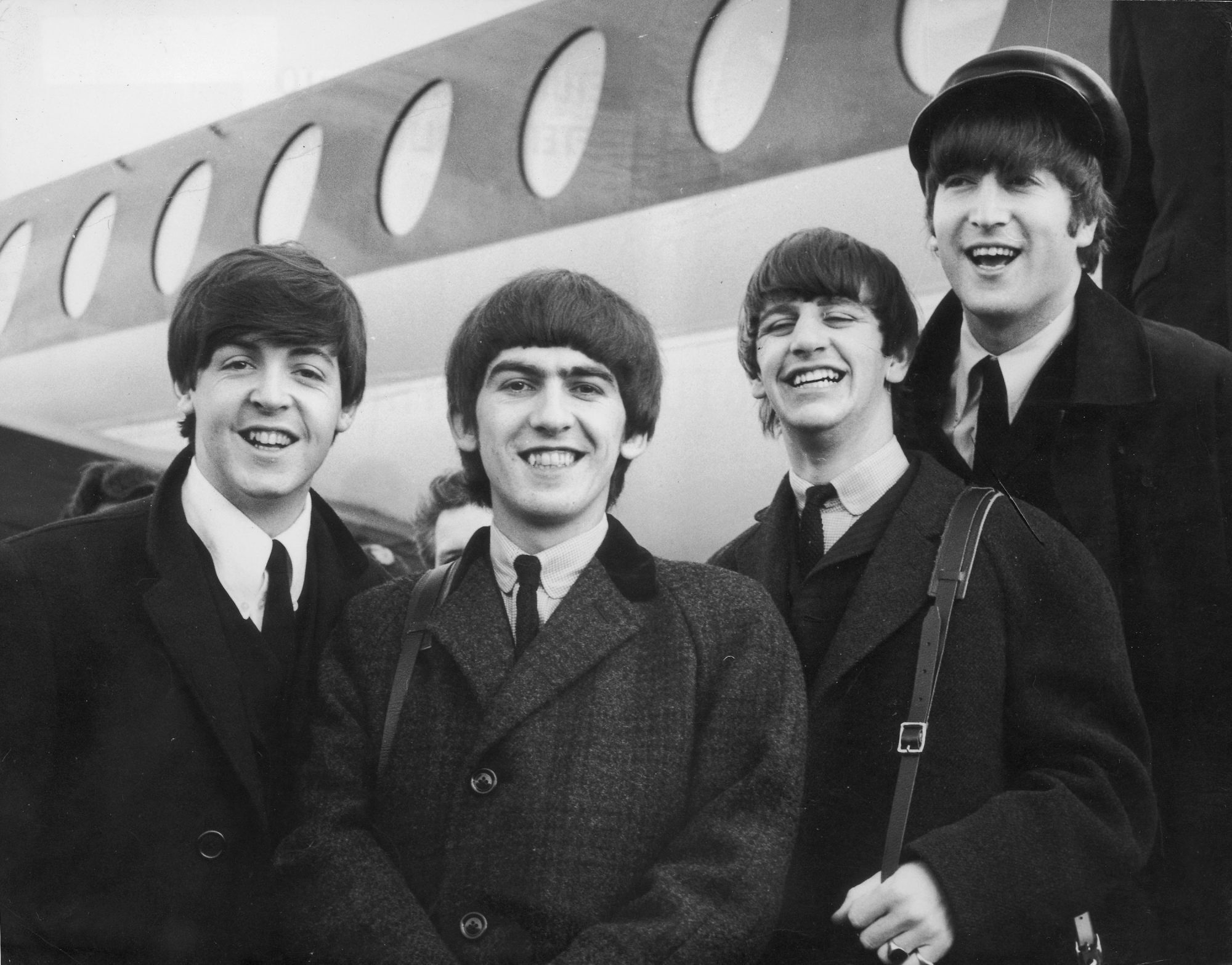
In spite of the pandemic, the course has attracted widespread publicity and interest from potential students worldwide.
“It’s been remarkable,” says Tessler. “I knew it would get a little bit of attention but I didn’t think it would get quite as much as it has. It’s very exciting.
“We’ve had all sorts of people from different countries and different ages applying. There are two college professors taking sabbaticals who’ve applied and I had another guy today who’s a medical doctor. We’re really looking for people who are mid-career professionals in areas like heritage tourism, culture and music and the creative industries or people aspiring to be in those fields.”
The common thread to unite the applicants so far is that they’re all Beatles fans. But Tessler insists the course itself has a more practical edge and is centred not just on the music of The Beatles but on their impact and their effect on tourism in Liverpool.
“People assume it’s going to be the greatest pub quiz ever, or that we’re going to sit around listening to [1967 album Sgt. Pepper’s Lonely Hearts Club Band] all day, which would be lovely but that’s not what we’re going to do,” she explains. “This course is intended to contextualise the legacy of The Beatles rather than celebrate The Beatles.
“What we are doing is looking at how and why, 50 years after they broke up, they are so popular. Why do they draw thousands of tourists to Liverpool and why are they still such a driver of the economy here?”
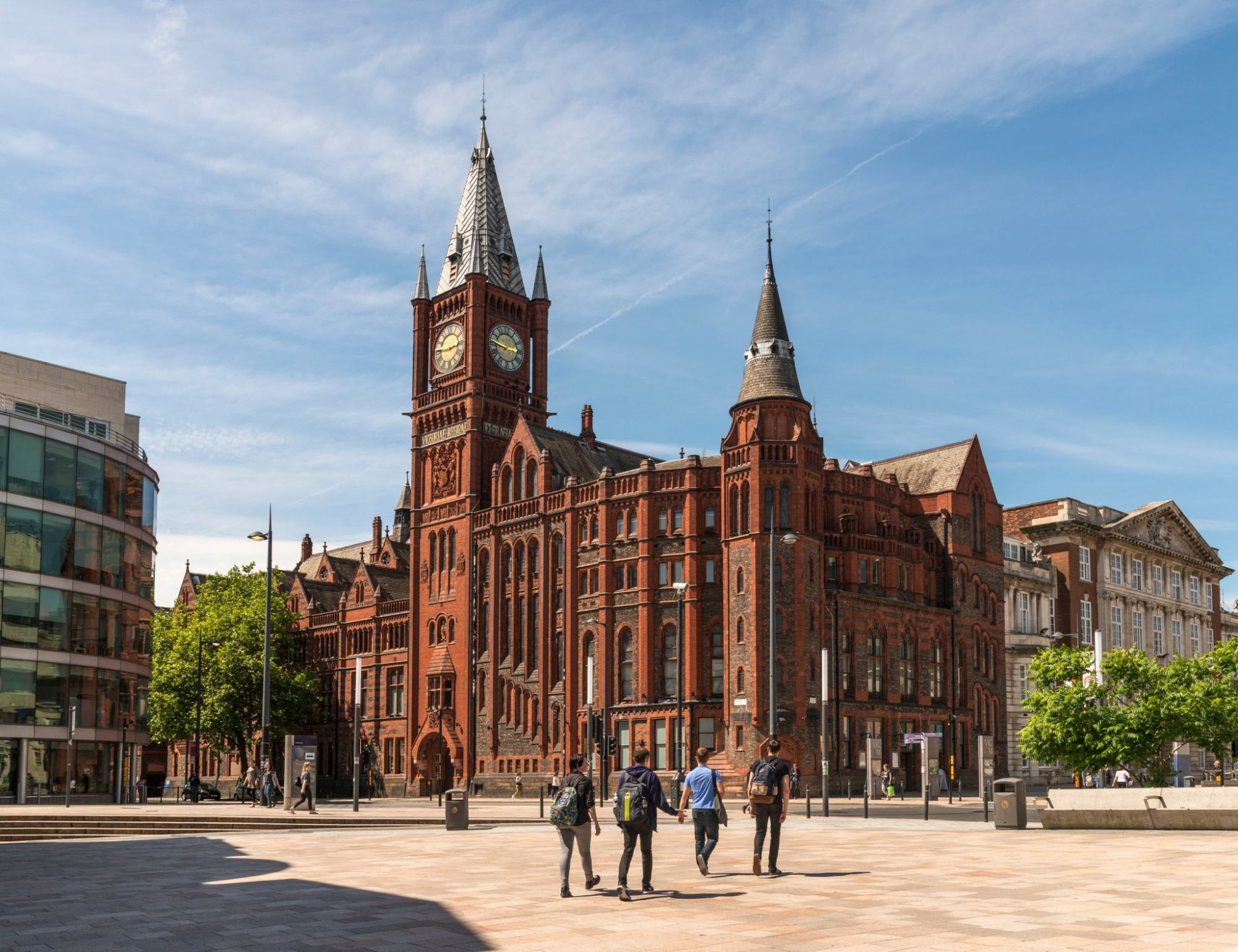
It hasn’t always been this way. In the 1970s and 80s, the people of Liverpool were strangely reluctant to celebrate the band in the way they do today. “The city has always had a very conflicted relationship with its Beatles heritage,” says Tessler. “There was this perception they had left Liverpool and turned their back on the city when it was going through a really difficult economic period, and then the civil unrest and the riots in the early 1980s.”
Lennon and McCartney never did, but the people of Liverpool and The Beatles have managed to reconcile. In the year before Covid-19, “The Beatles Story” exhibition, which opened on the city’s Royal Albert Dock in 1990, attracted a record number of more than 317,000 visitors.
“More and more people are discovering The Beatles for the first time. Their influence around the world is huge and it isn’t going away at all,” explains Mitch Francis, the exhibition’s marketing executive, who at 28 was born a generation after the band broke up.
“I’m from Merseyside, so growing up I couldn’t escape The Beatles and football. I was aware of The Beatles and knew how important they were for the tourism sector here. It’s blown my mind just how popular they still are.”
In the case of George Harrison’s house, for instance, it’s a private home. There are people living there – and they have to put up with tour buses going up and down the street twice a day, every day
“It was our biggest tweet by a mile – bigger than any John Lennon post,” says Francis. “They were so respectful that someone associated with The Beatles had recognised their music. It was like a huge deal.”
“The Beatles Story” is due to reopen this month and has Chinese-speaking guides as well as a Chinese website, as the band’s legions of Asian fans continue to grow. But while travel remains restricted, the exhibition is looking to locals to lead its revival.
“Most people in Liverpool don’t know as much about The Beatles as you’d think,” Francis says. “They know about The Beatles and they know how important they are to Liverpool but they haven’t necessarily visited ‘The Beatles Story’ or gone on a tour. It’s passed them by in the same way people in London don’t do the touristy things there.”
As Britain slowly emerges from the pandemic, efforts are being made by tourism officials to create a strategy to manage Liverpool’s Beatles legacy so that, as Tessler puts it, it “makes sense and works for people coming here to find out more about The Beatles but doesn’t dwarf everything else the city has to offer”.
Currently, she says, the situation is “a bit chaotic”, with a mixture of established and well-used tours and exhibitions together with a plethora of more informal groups and individuals offering Beatles-related tours.
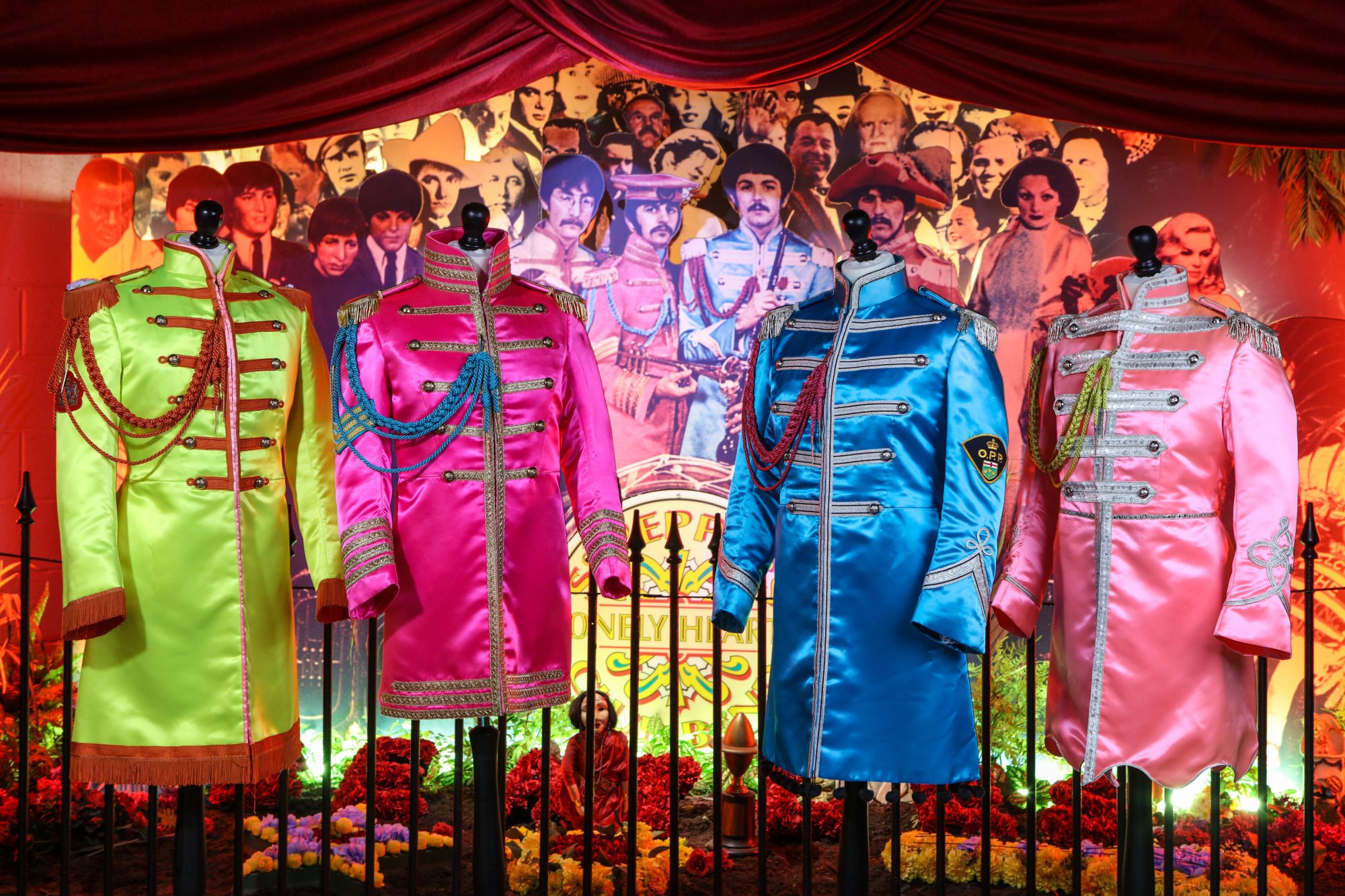
So, as well as widely visited attractions such as “The Beatles Story”, the Beatles Magical Mystery Tour and the childhood homes of McCartney and Lennon, there are scores of smaller operators offering walking tours and quirky Beatles experiences complete with rambling anecdotes and even karaoke versions of their greatest hits.
“In the case of George Harrison’s house, for instance, it’s a private home,” Tessler remarks. “There are people living there – and they have to put up with tour buses going up and down the street twice a day, every day.
“The city is looking to draw tourism to particular points so that The Beatles can be celebrated and explored in a way that allows people to indulge their fandom and enjoy the city without it overtaking the city.”
Half a century after they split, band members and relatives earned more than £50 million (HK$540 million) last year even though they no longer own the rights to their back catalogue. Meanwhile, The Beatles’ relationship with their home city is arguably closer than at any time since they last performed in the Cavern Club, in Mathew Street, in August 1963.
“The Beatles inspired the music we have today,” says Francis. “Sgt. Pepper was groundbreaking. So many singers and artists took inspiration from it and went on to create their own incredible stuff.”
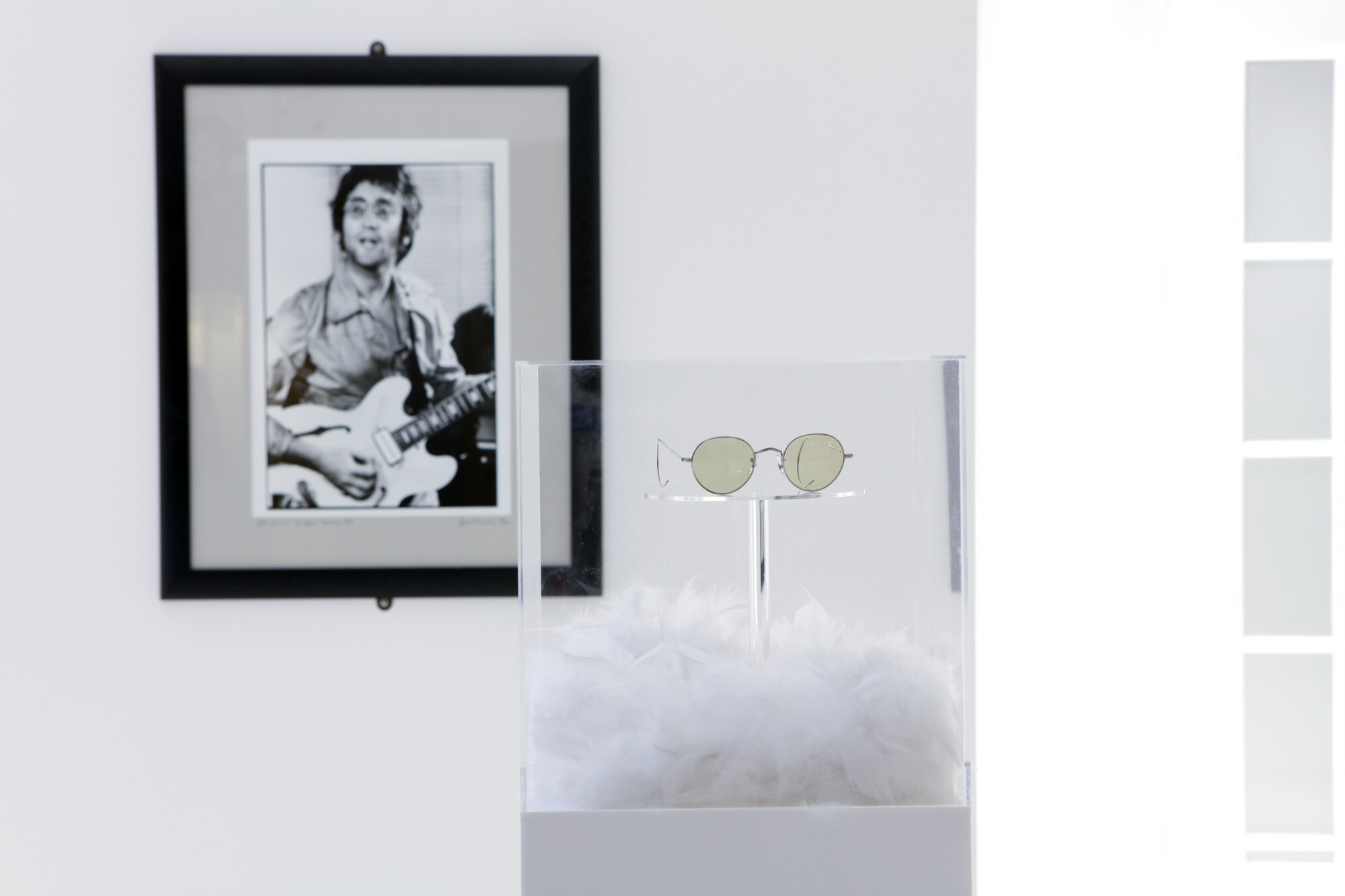
The enigma of their popularity is one to which Tessler and her students will dedicate time. “There’s just something about the music of The Beatles that seems to be eternal and enduring and something that people connect with either in terms of its music or lyrics.”
But after dedicating a lifetime to studying them, has Tessler found an answer to the question about the original boy band that surely matters most: which one is her favourite?
“I love them all equally,” she laughs, a little unconvincingly, before qualifying her answer. “I would have to say John, Paul and George are tied for first, and Ringo is a close second.”











